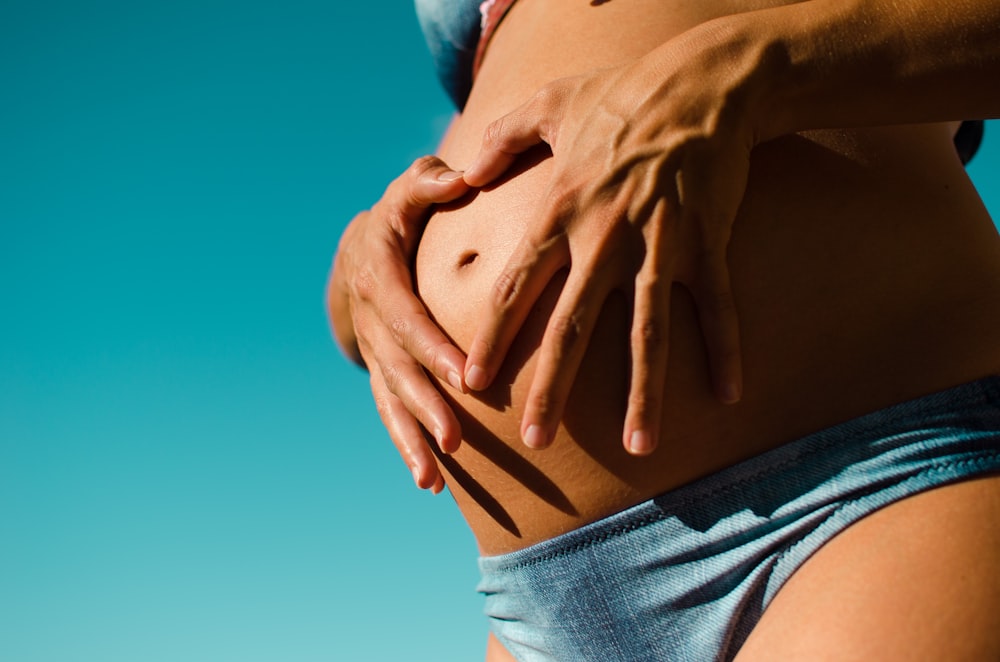In recent years, the keto diet has become a popular method of weight loss. Though there are very few long term studies of ketosis and weight loss, there are many reasons as to why it is effective.
The ketogenic diet, also known as the ‘keto’ or low carb, high fat (LCHF) diet, is a high fat, low carbohydrate diet in which one’s consumption of carbohydrates is reduced to 50-20, ideally 20, grams per day. When carbohydrate consumption is substantially reduced, the body’s supply of glucose is depleted, forcing it to turn to fat as an alternative source of energy. This metabolic state is known as ketosis. Ketosis leads to the production of ketones, which are stored in the liver and can provide energy to the brain.
In recent years, the keto diet has become a popular method of weight loss. Though there are very few long-term studies of ketosis and weight loss, there are many reasons as to why it is effective. The keto diet has been linked to the reduction of the hormone ghrelin; the body’s main ‘hunger hormone’. The reduction of hunger signals can lead to a lower calorie intake and less food cravings, resulting in weight loss.
Following a keto diet
The rule of the keto diet is to consume a high amount of fat, a moderate amount of protein, and small amounts of carbohydrates. Generally, a person following a keto diet should obtain:
- 70-80% of their calories from fat
- 20-25% of their calories from protein
- 5–10% of their calories from carbohydrates
Ideal foods
- Meat
- Fish and seafood
- Cheese Eggs
- Nuts
- Low carb vegetables (e.g. lettuce, kale, broccoli, avocado, asparagus, and mushrooms)
- Berries (especially raspberries and strawberries)
- Dark chocolate
- Black coffee
- Unsweetened tea
- Healthy oils (e.g. olive and coconut oil)

Foods to avoid
- Bread
- Pasta
- Oats
- Rice
- Beans and legumes
- High carb fruits (e.g. bananas)
- Starchy vegetables (e.g. Potatoes and sweet potatoes)
- Sugary foods
- Fruit juices
- Most milks, with the exception of unsweetened almond milk
- Sweetened yoghurts
- Chips and crackers

Other uses and benefits
Epilepsy Treatment
The keto diet was originally used as a medical diet to assist in the treatment of Epilepsy, primarily in children.
Epilepsy is the fourth most common neurological disorder. It is characterised by a variety of unpredictable seizures, ranging from sudden unresponsiveness, confusion, abnormal behaviour, and loss of memory, to convulsions and complete loss of consciousness. A person is diagnosed with Epilepsy if they experience two episodes of unprovoked seizures (occurring more than 24 hours apart), that are not caused by another medical condition such as low blood sugar, alcohol withdrawal, or drug overdose.
Keto diets are traditionally used to treat and manage seizures in children when anticonvulsant medication has not worked. Higher ketone levels in the blood often lead to improved seizure control.
Fatty Liver
Studies have shown that the keto diet is effective in treating non-alcoholic fatty liver disease. Non-alcoholic fatty liver disease occurs when too much fat is stored in the liver. In the past, fatty liver was attributed to those who consumed excess amounts of alcohol. However, today, it is more likely to be caused by other factors, such as obesity and insulin resistance.
A keto diet can assist in the treatment of non-alcoholic fatty liver disease by:
- Reducing fat stored in the liver.
- Decreasing insulin levels.
- Suppressing appetite.
- Promoting weight loss.
Other Neurological Issues

Due to extensive evidence that the keto diet effectively reduces seizures in children with Epilepsy, it has been suggested that the diet may assist in the treatment of other neurological conditions, such as Alzheimer’s, Parkinson’s Disease, Multiple Sclerosis, and even brain cancer. However, there is currently not enough evidence to support these claims, and more human studies are required.
Risks and side effects
The ‘Keto Flu’
A sudden decrease in carbohydrate intake can come as a shock to the body, which may cause a variety of flu-like symptoms. For most people, the ‘Keto Flu’ is a group of short-term side effects that will resolve within a few weeks. These symptoms may include:
- Dehydration
- Dizziness
- Fatigue
- Headache
- Constipation
- Bad Breath
Vitamin and Mineral Deficiencies
As the majority of fruits and vegetables contain high levels of carbohydrates, they are often not consumed while following a keto diet. This increases risk of deficiencies in nutrients such as magnesium, phosphorus, vitamin B, and vitamin C.
Lowered Bone Density
Ketosis can have negative effects on bone health. Though there have been only a few studies regarding the keto diet and bone health, results have showed depleted bone density and an increase in fracture risk.
Kidney Stones
High fat animal products, such as meat and eggs, contain little to no carbohydrates (for example, one boiled egg contains approximately 0.6 grams of carbs) and are therefore staple food items in a keto diet. Eating a lot of these foods leads to a higher risk of kidney problems, such as kidney stones.
Heightened Risk of Chronic Illnesses
Medical evidence suggests that following a ketogenic diet increases the likelihood of chronic, potentially life-threatening illnesses, such as heart disease and cancer.
Who shouldn’t follow a keto diet?
Those with impaired kidney function
As mentioned earlier, those who consume high quantities of animal products, such as meat, eggs, and cheese, are more likely to develop kidney problems. Because of this, those with pre-existing kidney issues should not follow a keto diet.
Pregnant women
When it comes to the keto diet and pregnancy, there is little research, mainly due to ethical issues regarding studies performed on pregnant mothers. However, the main consensus between doctors is that following a keto diet is not safe during pregnancy and can lead to a higher risk of developmental delays and issues with organ growth. Following a keto diet during pregnancy may also be linked to organ dysfunction and behavioural changes after pregnancy.
Those who are underweight
Though the keto diet involves consuming high amounts of fat, it often leads to, sometimes rapid, weight loss. For this reason, it is not recommended for those who are underweight.
Those who suffer from, or have a history of, eating disorders
Without the advice of a dietician, it is not recommended for individuals with a history of eating disorders or disordered eating behaviours to follow restrictive diets. There is a ‘slippery slope’ when it comes to eating disorders and dieting. Obsessing about the nutritional content in food may trigger eating disorder sufferers to fall back into dangerous behaviours. What’s more, those with a history of eating disorders or under eating may already be suffering from nutrient deficiencies, and these may be exacerbated while following a keto diet.

Keto and diabetes
There are two main types of Diabetes. Type 1 Diabetes is a chronic condition in which the pancreas is unable to produce an adequate amount insulin, which is vital in converting glucose to energy. Type 2 Diabetes is a progressive condition where the pancreas slowly loses its ability to produce insulin.
There is no simple answer as to whether a keto diet is safe for those with diabetes. In some, following a keto diet may be possible and beneficial, provided they are closely monitored by a medical professional. As many with type 2 diabetes are overweight, the weight loss benefits of a keto diet may be helpful. A keto diet also lowers blood sugar levels, which may also be beneficial. Monitoring carbohydrate consumption is recommended in the treatment of type 2 diabetes, as large consumption can cause blood sugar spikes.
However, there are numerous risks involved. Firstly, a keto diet may cause blood sugar levels to drop too low, leading to symptoms such as dizziness, confusion, and loss of consciousness. Secondly, following a keto diet puts sufferers at risk of developing diabetic ketoacidosis. Ketoacidosis occurs when ketone bodies produce a dangerous amount of acid in the bloodstream. The kidneys then begin to excrete ketones in the urine, which can result in fluid loss. Cases of diabetic ketoacidosis usually occur in those with type 1 diabetes, due to their inability to produce insulin, which prevents the body from producing too many ketones. However, in rare cases, it has been observed in patients with type 2 diabetes.
Always remember

Before making any changes to your diet, it is vital that you seek advice from your doctor or dietician, monitor your health closely, and report any concerning symptoms. If you are taking any medications, it is also important to talk to your doctor about any effects a keto diet may have on them. All in all, trust your body. If you don’t feel well while following a keto diet, speak to a professional about whether or not the diet it is right for you, and discuss alternatives.



